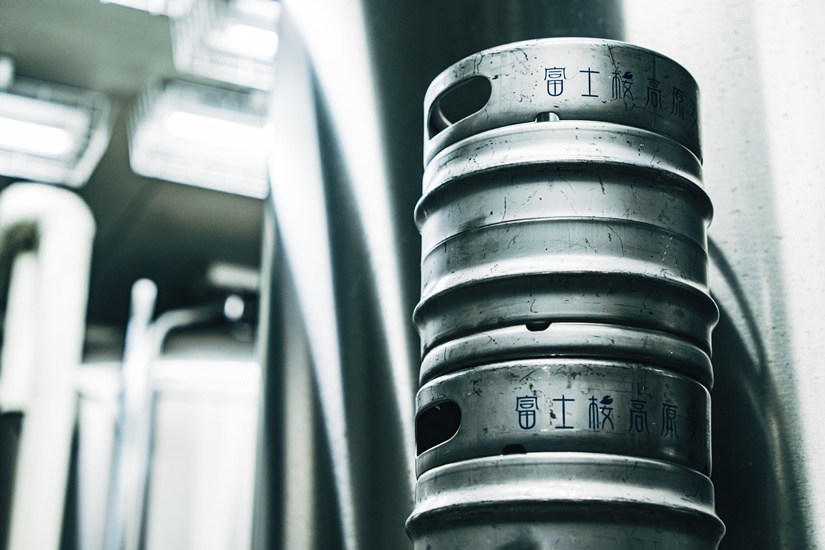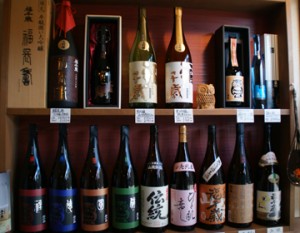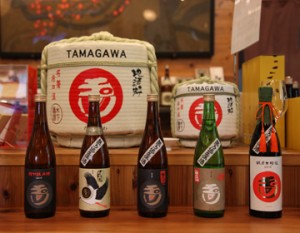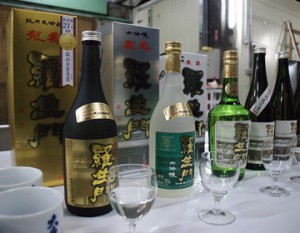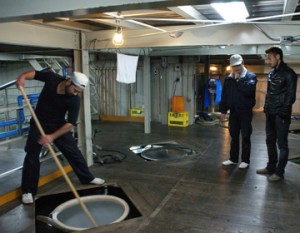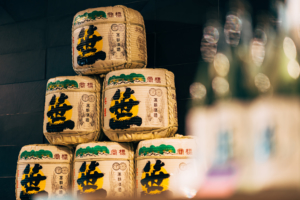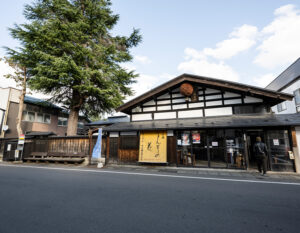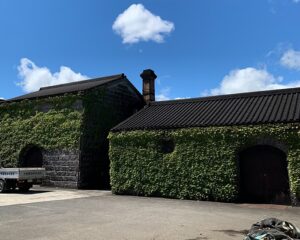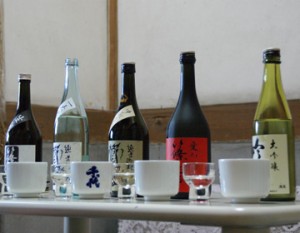Fuji is rich in minerals and suitable for fermentation of beer yeast. Fuji, and there is a craftsman who transforms this spring water into beer. Fuji. Impressed by the taste of the beer he drank in Germany during a training trip, this craftsman, who has been brewing German beer at the northern foot of Mt.
The Beginning of Fujizakura Kogen Brewery

The craft beer culture in Japan dates back to 1994, when Japan’s Liquor Tax Law was revised. The minimum production volume for a beer license was lowered from 2,000 kiloliters to 60 kiloliters, making it possible for even small breweries to produce beer. Later, “locally brewed beer” was born, but the quality was not yet refined, and the culture gradually faded away as consumers in Japan, accustomed to major beer brands, failed to accept it.
In the 2000s, craft beer became popular in the U.S., and local beer began to be reevaluated in Japan as well. In the 2000s, the popularity of craft beer ignited in the U.S., and local breweries in Japan began to take a fresh look at microbreweries. Fuji, is one such craft beer brewery that is celebrating its 25th anniversary this year. We interviewed the brewery’s head brewer, Mr. Tentsu Miyashita.
Originally, this facility was a drive-in. As the facility was aging, we were considering new development, and we decided to embark on a business utilizing the water source (spring water) that we owned (Fuji Kanko Kaihatsu).
When considering how to make use of the spring water, Fuji Kanko Kaihatsu turned its attention to microbreweries, which were becoming popular in Japan at the time. The company began by going to breweries in Japan and Germany to learn how to brew authentic beer. Mr. Miyashita says, “I still clearly remember the trembling deliciousness of the first German beer I tasted in Munich, Germany. This is where Fujizakura Kogen Brewery’s commitment began.
Ingredients and Four Elements of German Beer

Fujizakura Kogen Brewery’s standard is a traditional German beer called Weizen made from more than 50% wheat malt, which is made from germinated wheat seeds. In 1516, the world’s first food law was enacted in Germany, which stated that beer should be made only from malt, hops, water, and yeast. This “Beer Purity Law” fascinated Mr. Miyashita, who was studying beer brewing in Germany 27 years ago.
The malt is dried after the buds and roots are removed, and is produced in many parts of the world. Among them, the brewery imports malt from Weyermann in Germany and uses it. It is characterized by its mellow aroma and slight sweetness, and in order to prevent it from absorbing moisture and becoming soft in the humid Japanese climate, the temperature and air conditioning in the warehouse are thoroughly controlled. The flavor, color, and taste of the beer can completely change depending on the distribution of malt, so the craftsman’s experience and skill are needed to determine the distribution that will bring out the desired appearance and taste.
Along with malt, hops are an important ingredient in beer brewing. Hops are a member of the Asaceae family and are responsible for giving beer its bitterness and aroma. Hops are the ingredient that reflects the brewer’s idea of what kind of bitterness and flavor he or she wants to produce.
During the fermentation process, beer yeast takes in sugar to produce alcohol and carbon dioxide. It also takes in amino acids to produce aroma and flavor compounds. Mr. Miyashita carefully selected two types of beer yeast from the myriad available.
One of the strengths of Fujizakura Kogen Brewery, which brews beer in the area at the foot of Mt. Fuji, which is filtered through lava rock, contains the right amount of minerals for beer yeast to ferment. Fuji, we do not make adjustments to the water itself, but rather, we distribute malt and hops according to the properties of the water to brew beer that makes the most of its potential. Fujizakura Kogen Brewery does not make adjustments to the water itself.
The combination of malt, hops, yeast, and water produces a very different beer, so the result is never the same from one brewer to the next. The complexity of this combination is “the real thrill and the fun,” according to Miyashita.
Brewing beer that can only be found here.

One of the brewing processes is saccharification, in which the starch in the malt is converted to sugar through the action of enzymes. Specifically, the process involves making wort by mixing crushed malt with hot water in a saccharification kettle and raising the temperature to activate the enzymes. Fujizakura Kogen uses a saccharification method originated in Germany called decoction, in which a portion of the wort is extracted, brought to a boil, and then returned to the saccharification kettle to raise the overall temperature. First, the temperature is raised from 37°C to 44°C and allowed to rest for 10 minutes to activate the enzymes that break down the malt proteins into amino acids. Next, the temperature is raised to 58°C with another 10-minute break, followed by five to six steps at 62°C and 72°C, which are also important. In this way, the temperature is raised in small increments with time in between. (The appropriate temperature range depends on the type of beer.)
It is not impossible to raise the temperature all at once without controlling the temperature in small steps. However, by raising the temperature in small steps, the brewery is able to produce a stable beer.
There are only a few breweries in Japan that have equipment capable of such a step-by-step process,” says Miyashita. Even an American brewer who visited the brewery was impressed by the equipment. We want to deliver as good a taste as possible to our customers,” he says. Fujizakura Kogen Brewery’s unique facilities and attention to detail, backed up by experience, produce German beer that captures the hearts of those who drink it.
Diverse lineup and flavors

The company currently ships craft beer to beer bars and liquor stores nationwide, in addition to online mail order. Pils,” a German-style lager, is characterized by its clear sharpness and bitter taste. Weizen,” the culmination of Fujizakura Kogen Brewery, has a fruity, mildly sweet taste that spreads over the palate as it rinses down the throat, while the masterpiece Rauch, which won the World Beer Cup and World Beer Awards in 2012, has a smoky, sweet taste. Schwarzweizen, a black beer, combines sharpness and “sweet aroma.
In addition to the four regular craft beers, there are about 10 limited-time-only craft beers available each year, including a beer made with yuzu (a citrus fruit produced in Fujikawa, Yamanashi Prefecture). The lineup allows not only beer lovers but also a wide range of people to enjoy the full flavor of German beer.
All of the beers use the “natural carbonation” method, in which carbon dioxide gas is naturally generated by the activity of beer yeast, rather than being injected into the beer afterwards, to achieve a soft and smooth carbonated taste without the stomach-churning sensation that is typical of carbonated beers.
Fujizakura Kogen Brewery looks to the future

Miyashita says, “In order to continue to share the excellence of German beer with the rest of Japan, we have to make beer that sells, which is the foundation of our business. Fujizakura Kogen Brewery has been focusing on German beer for more than 20 years since its first encounter with beer brewing in Germany during a training program, but the recent craft beer boom has focused attention on an American-born beer called IPA (India Pale Ale). IPA (India Pale Ale) is characterized by its strong bitterness from the use of large amounts of hops, and its flavor is quite different from that of “weizen,” which does not use many hops.
He feels the need to preserve the German beers that he has stuck to while taking on new challenges. With this in mind, he has been working hard to develop a new beer, “New England Weizen,” which is a fusion of German beer and IPA. This new lineup is the future of Fujizakura Kogen Brewery, and it expresses the impact of the bitterness of hops, while retaining the sweet, mild aftertaste of German beer.
There are many breweries in Japan today. There is a lot of pressure, but I enjoy the pressure,” said Miyashita with a smile at the end of the interview. While preserving the long-loved Fujizakura Kogen Brewery brand, the desire of craftsmen to continue to master the art of brewing new beers that meet the needs of the market may lead to the creation of new standards that will surprise the world.




